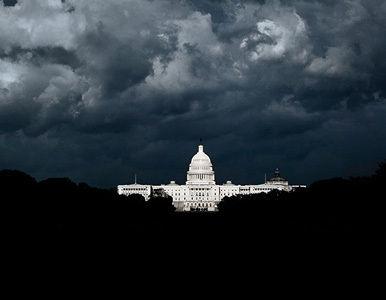
Congress is racing towards the end of its 2013 session with a full agenda of unfinished business. The House is scheduled to adjourn for the year on Friday, December 13th. The Senate comes back into session this week and is scheduled to adjourn on December 20th. Here are the top 5 things to watch and Congress winds down for the year.
1. Budget Negotiations
Rep. Paul Ryan and Sen. Patty Murray, chairs of each chamber’s budget committees, are negotiating a two-year budget deal that would push the budget debate until well after the 2014 elections. Officially, the talks are part of a conference committee on a budget resolution. A resolution is non-binding, however, and senior sources on Capitol Hill tell Breitbart News that Ryan and Murray are largely bypassing the conference committee and negotiating with each other on legislation that would put their spending agreement into law.
If Ryan and Murray reach a deal, it is likely to offset some of the sequester cuts by increasing discretionary spending and boosting federal user fees. In exchange, Democrats are expected to agree to tweaks in how future entitlement benefits are calculated. Ryan would have just a few days to sell the House GOP caucus on a plan to boost immediate spending in exchange for “future savings.”
2. Farm Bill
Congress last passed a Farm Bill in 2008. Since then, the 5-year law has been temporarily extended. The current extension expires at the end of the year. While the Farm Bill has traditionally been chiefly about crop subsidies and other agricultural programs, the bill is overwhelmingly now about food stamps. Over the next five years, the Farm Bill will spend $500 billion, but 80% of that is consumed by the food stamp program. Spending on food stamps is currently the highest in history and cuts to the program are the main stumbling block to a final bill. Senate Democrats are looking for around $4 billion in cuts, out of around $400 billion in spending. House Republicans want $40 billion in cuts.
In recent days, it has been reported that negotiators were nearing agreement on cuts of around $10 billion. If a final deal isn’t reached in the next couple days, expect another temporary extension. If the Farm Bill isn’t reauthorized or extended by December 31st, the dairy programs in the bill revert to a Depression-era law, which could cause the price of milk to quadruple after the first of the year. Lawmakers will want to avoid that heading into an election year.
3. Defense Authorization
The Defense Authorization extends federal policy concerning all aspects of the military. It technically provides the legal authorization for all Defense programs. It also authorizes spending money on military pay and other items, although it doesn’t actually provide the money for them. Without the authorization, though, any monies appropriated couldn’t be spent. For 51 straight years, Congress has always passed a Defense Authorization before current law expired. This may be the only piece of legislation that is guaranteed to pass.
4. Misc. Spending, “Fixes” and Expiring Tax Breaks
Democrats have made extending long-term unemployment benefits a key demand for any end of the year legislation. On December 31st, 1.3 million unemployed individuals hit the 99-week limit of benefits. Democrats would like to extend the benefits, but the measure costs $25 billion over the next decade. They have backed off demands that the extension be included in any budget deal, because it would be difficult to offset that spending through that, but will push to pass something on the issue this week.
There will also be pressure to enact a new “Doc Fix,” to block a steep cut in Medicare reimbursements to doctors. Without a measure to waive already enacted cuts, doctors would see a 24% decrease in Medicare payments. This provision provides a cautionary tale on the difficulty of achieving promised “future savings.” In the 1990s, a budget deal was built on “savings” achieved by reducing Medicare reimbursements. The cuts were never made as Congress has always passed a “fix” to avoid the cuts.
There are also a couple dozen special tax breaks expiring at the end of the year. These cover a range of items from tax credits for research and development to expedited depreciation. There has been little discussion of these items, as the other issues have overshadowed them. They are important to large businesses, so expect a last-minute lobbying push to attach extensions to any legislation that seems poised to pass.
5. Nuclear Fallout
A couple weeks ago, Senate Democrats exercised the long-threatened “nuclear option,” eliminating the filibuster for executive appointments and judicial nominations. These nominations can now pass by a simple majority. A few appointments and nominations to the DC Circuit have been blocked in the Senate. Democrats may push to have these nominees approved before the end of the year, when the controversy over the unprecedented procedure is obscured by the holidays.
Republicans could, however, retaliate by bringing the Senate to a halt. The Senate needs Unanimous Consent to conduct almost all of its business. If just one GOP Senator withheld that consent, the Senate would be unable to operate. Whether or not the GOP has the wherewithal to make such a stand remains to be seen, however. Many GOP Senators reacted to the rule change with expressions of moral indignation. We will soon know whether that was just empty rhetoric.

COMMENTS
Please let us know if you're having issues with commenting.